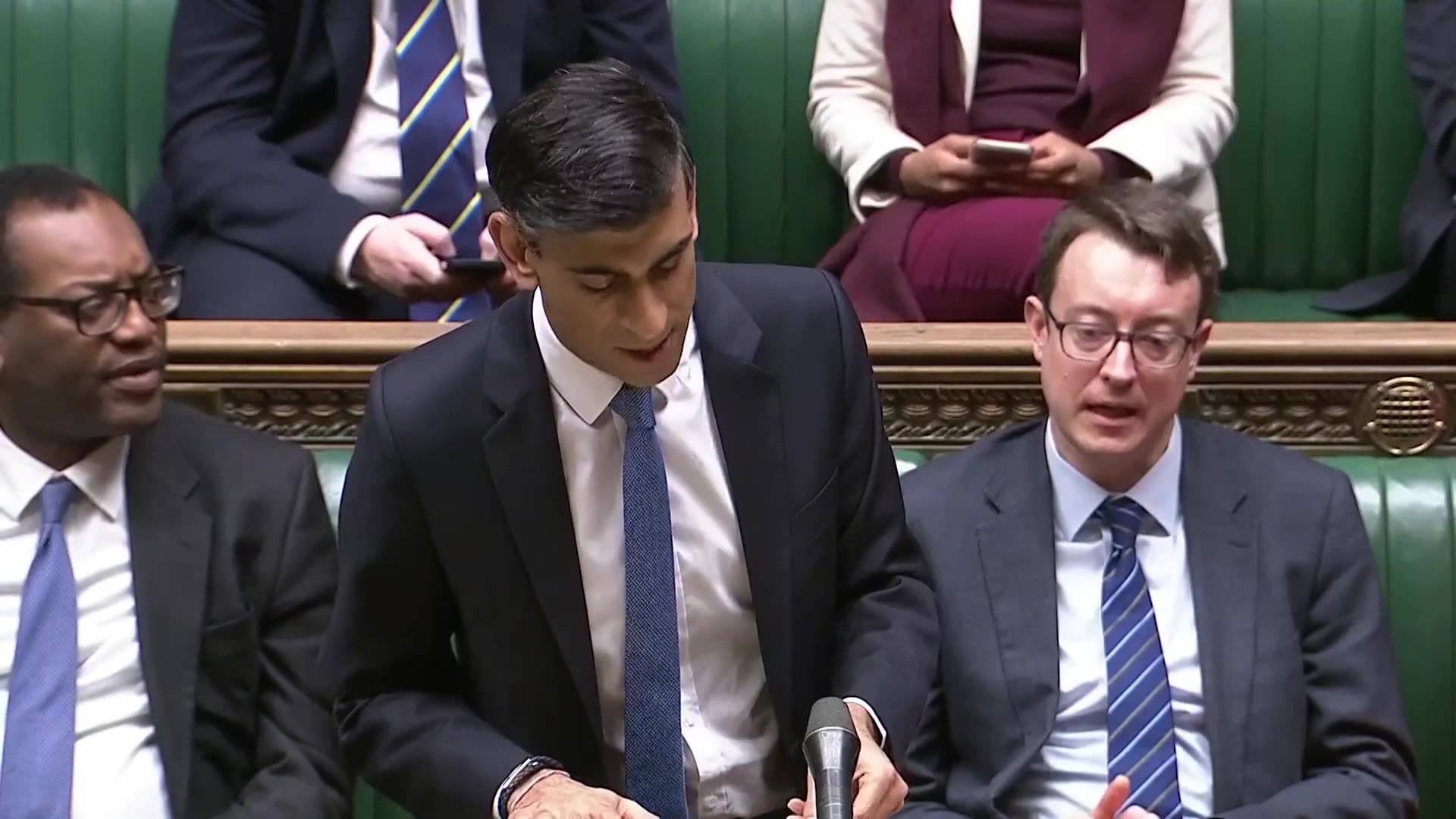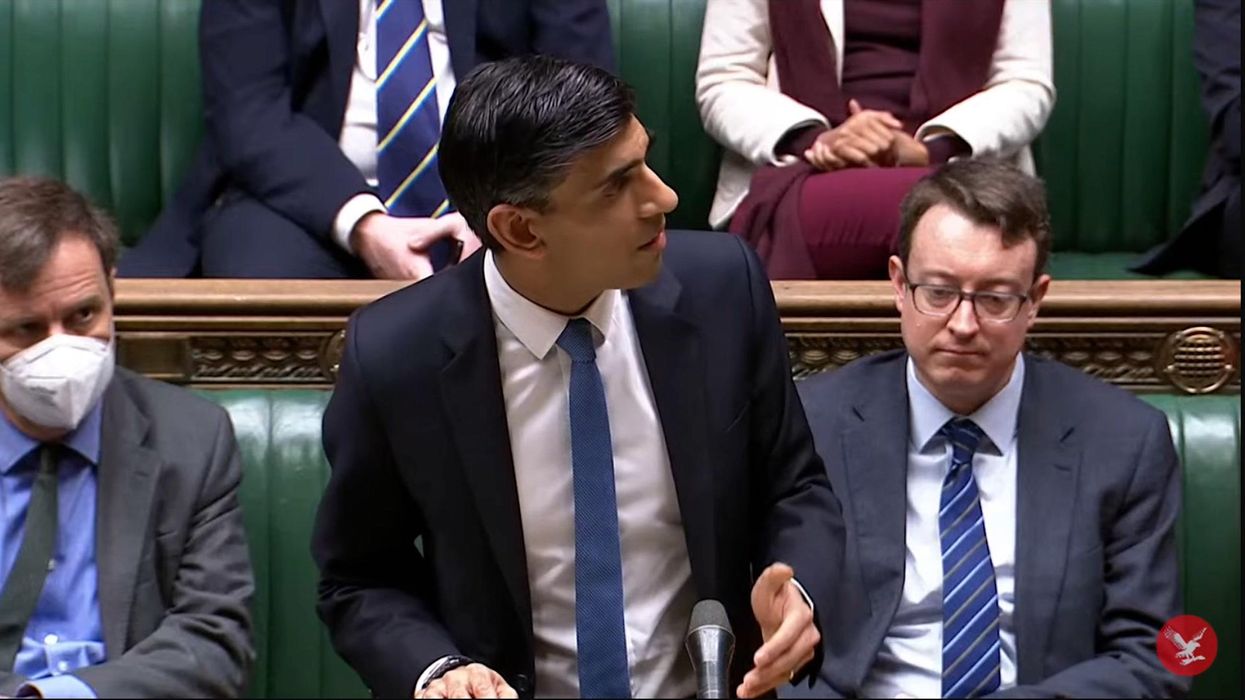Household energy bills are set to skyrocket by £693 per year from the beginning of April.
Energy regulator Ofgem was forced to hike the energy price cap, which will apply between April and September, to a record £1,971 for a typical household as gas prices soared to unprecedented highs. For customers with prepayment meters, the price cap will balloon by £708 to £2,017.
The decision is likely to impact 22 million households and applies to those who are on their energy supplier’s default tariff.
But what does all of this mean for you and your wallet? Here’s a breakdown:
First of all, what’s the energy price cap?
The price cap is the maximum amount Ofgem allows suppliers to charge customers on their basic energy tariff. You’re likely on a default tariff if you’ve never checked what tariff you’re on, or if you haven’t switched supplies in the last year.
It was brought in in 2019 by the regulator to protect customers from unfair costs and to stop energy companies from making “excessive profits”.
Sign up to our new free Indy100 weekly newsletter
Confusingly, the energy cap isn’t necessarily a cap on the price you pay. Rather, it’s a cap on rates, so the more units of energy you use, the more you’ll pay and vice versa.
It’s based on a number of factors, including the wholesale price of power in the six months. It’s been a difficult time for the industry. According to Ofgem, 29 energy companies have exited the market over the last year due to soaring global gas prices.
The price cap increase includes a £68 charge per household to cover the costs of protecting millions of customers whose energy suppliers collapsed in recent months.
Okay, so why are bills rising?
The price of gas on global markets is around four times higher than they were a year ago, and they have been high for months.
There is not one single cause for the global gas price rise, but people, companies and countries generally are having to compete with each other to buy up gas.
Ofgem says at the start of winter, we saw prices of around £1.80 a therm (the cost to buy a unit of gas) and peaking at over £4.00 a therm, against a more typical price of £0.50 a therm. In summer it’s usually £0.30 a therm, but they’re now at over £2.00.
The price cap allows companies to pass on these higher costs to customers from April, resulting in higher bills.
There are fears that if there is a war between Russia and Ukraine, gas prices could be pushed up further if the west places sanctions on Russia. The UK only gets 3 per cent of its gas from Russia – most of our gas is produced at home or pumped from Norway – but many European countries rely on Russia for their gas.
What is the government doing about it?
Chancellor Rishi Sunak today announced a string of new measures worth £9 billion to “take the sting out” of the price rises.
1/ The energy regulator OFGEM has announced that the energy price cap will rise in April.\n\nWithout action this would be very tough for millions of families.\n\nSo we're going to step in and directly help people manage those extra costs with a \u00a3350 Energy Bills Rebate.\n\nExplainer pic.twitter.com/N5t3NOkS7p— Rishi Sunak (@Rishi Sunak) 1643888364
He said that all 28 million households in Britain would get a £200 up-front rebate on their energy bills from October.
The rebate will come from the public purse, and the government will recoup the cash by hiking bills by £40 over the next five years.
Sunak also promised a £150 council tax rebate for homes in bands A to D, something he said would cover around 80 per cent of homes in England, as well as £144 million to councils to support vulnerable people.
Mr Sunak said: “Without government intervention, the increase in the price cap would leave the average household having to find an extra £693, the actions I’m announcing today will provide to the vast majority of households just over half of that amount, £350.”
He didn’t cut the VAT on energy bills as it would “disproportionately benefit wealthier households” and become a “permanent government subsidy on everyone’s bills”.

How does this fit into the wider cost of living crisis?
It has been dubbed “Black Thursday” by some of the papers in reference to the stock market crash in 1929 due to today’s energy announcement and interest rate hike.
The Bank of England raised interest rates from 0.25 per cent to 0.5 per cent, marking the first back-to-back rise since 2004.
Energy bills up 54%.\nUK interest rates doubled \u2013 from 0.25% to 0.5%.\nGovt announces energy mitigation measures.\n\nSo what does this all mean for your pocket & how it works. I\u2019ve bashed out an explanation and instant analysis video.\n\nPlease share with anyone who\u2019s worriedpic.twitter.com/TUNlNq1CdS— Martin Lewis (@Martin Lewis) 1643894267
Shadow Treasury chief secretary Pat McFadden warned that households were facing a “triple whammy” of rising energy bills, tax hikes and wages failing to keep pace with inflation.
He told Sky News: “People are really worried about this, they don’t know how they are going to pay. Even before these rises have been announced, people have been so fearful they have been turning their heating off.”
“These three things are coming together to squeeze household incomes in a way that we haven’t seen for many, many years.”
Along with rising energy bills, there is also a one-year 1.25 per cent National Insurance rate rise due in April to help pay for social care and NHS funding.
This comes as wages are already failing to keep up with rises in the cost of living, with average weekly earnings after taking account of inflation falling for the first time in more than a year.
Consumer Prices Index (CPI) inflation is currently running at 5.4 per cent as of December, according to the Office for National Statistics (ONS).
The Bank of England has warned inflation will rise to 6 per cent in April, but many experts are predicting it could peak at close to 7 per cent before falling back.
Households can expect outgoings to increase by £1,200 this year, The Resolution Foundation has warned.
For more, followThe Independent’s live blog.
Have your say in our news democracy. Click the upvote icon at the top of the page to help raise this article through the indy100 rankings.














